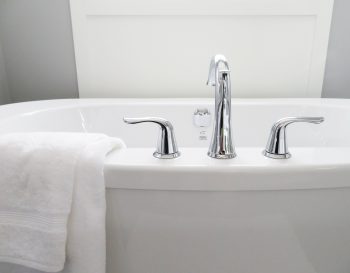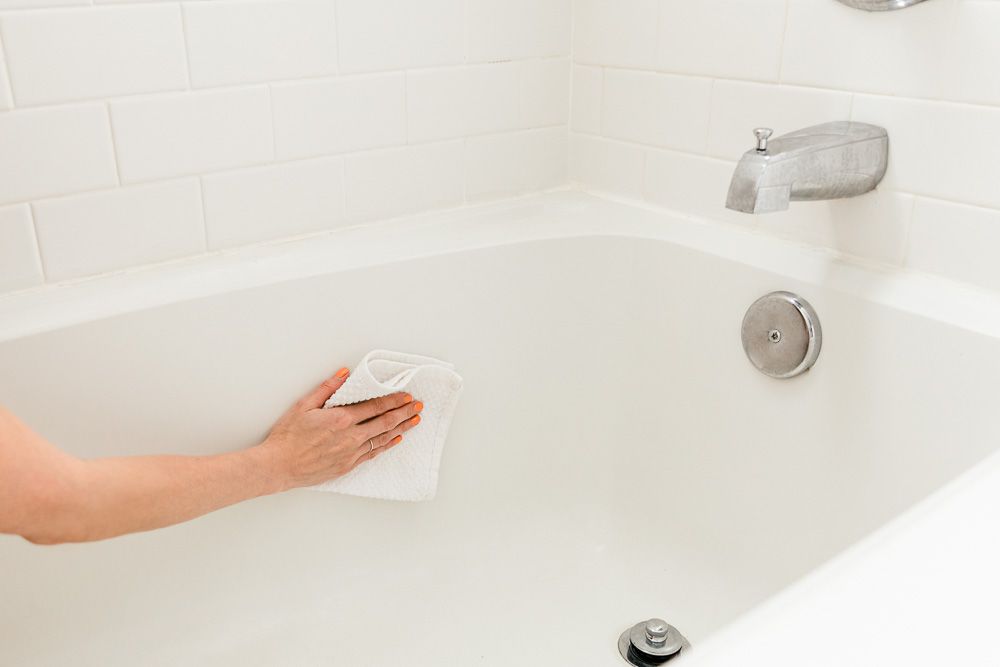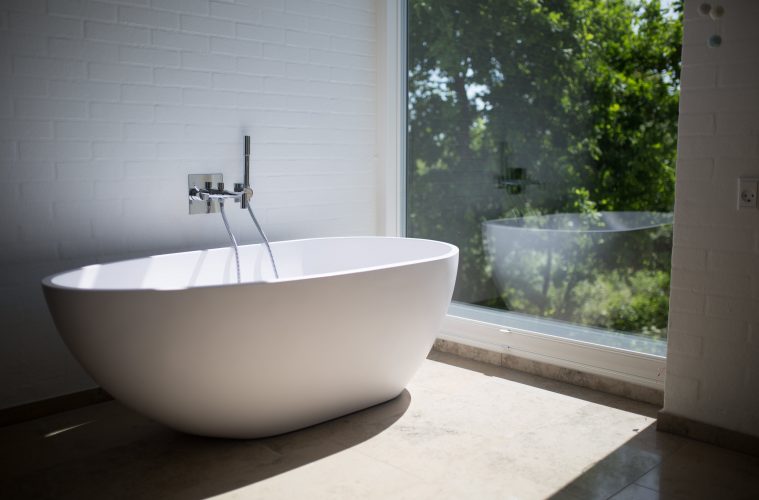Stuck with stubborn bathtub stains that your regular detergent doesn’t do the trick for? Different stains (caused by various reasons such as soap scum, mold, mildew, hard water stains, and even rust) require different treatments, so once you’ve identified the cause of your bathtub woes, you’ll know how to clean them up.
We’re breaking down 4 potential causes of your bathtub stains, and how to remove them:
Hard water stains
Hard water stains are caused by the mineral deposits left behind when water with a high mineral content evaporates. Hard water stains can commonly be spotted on faucets, showerheads, and the surfaces of bathtubs or shower enclosures.
Use a mixture of equal parts white vinegar and water to remove them. Apply, let it sit for at least 20 minutes, and then scrub with a brush. If you’re all out of vinegar, lemon juice can also be effective due to its natural acidity.

Pixabay
Soap scum
Soap scum is a white or cloudy film that results from the combination of soap, body oils, and hard water. Soap scum generally accumulates on bathtub and shower surfaces, glass doors, and tiles.
Create a paste with baking soda and vinegar. Apply, let it sit for at least 20 minutes, and scrub with a brush. You can also find commercial bathroom cleaners designed for soap scum removal.
ALSO SEE: Easy DIY Bath Bombs
Mold and mildew
Mold and mildew are types of fungi that thrive in damp, humid conditions – so your bathroom makes the perfect pozzie for them. Mold and mildew are typically found in corners, grout lines, and on caulking in the bathroom.
Use a bleach solution (1 part bleach to 10 parts water) on affected areas, ensuring proper ventilation. Hydrogen peroxide can be a milder alternative for mold and mildew stains.

Pexels
Rust
Rust is the result of metal oxidation, often caused by exposure to water and air. Rust is commonly on metal fixtures like faucets, drain covers, or shaving mirrors in the bathroom.
To remove rust effectively, create a paste with lemon juice and salt. Apply, let it sit, and scrub. If that doesn’t work, consider using commercial rust removers following product instructions carefully.
ALSO SEE:
Feature image: Pexels
Article written and compiled by Savanah Douglas for Woman&Home.

